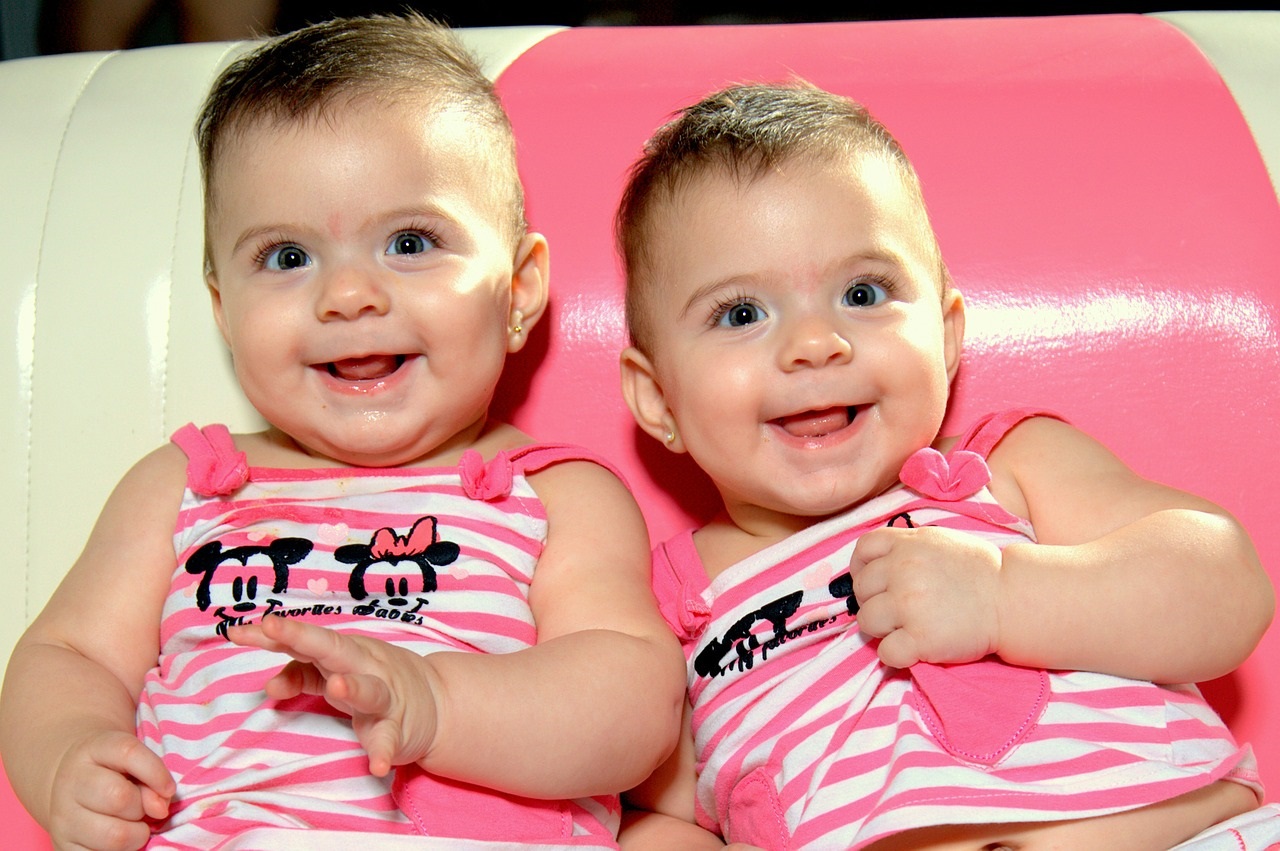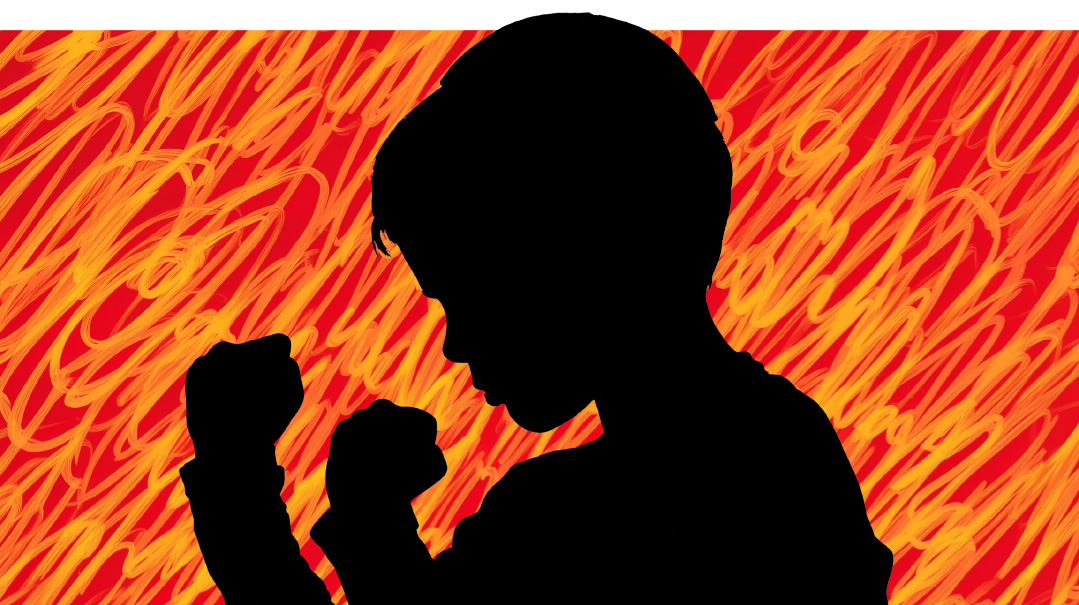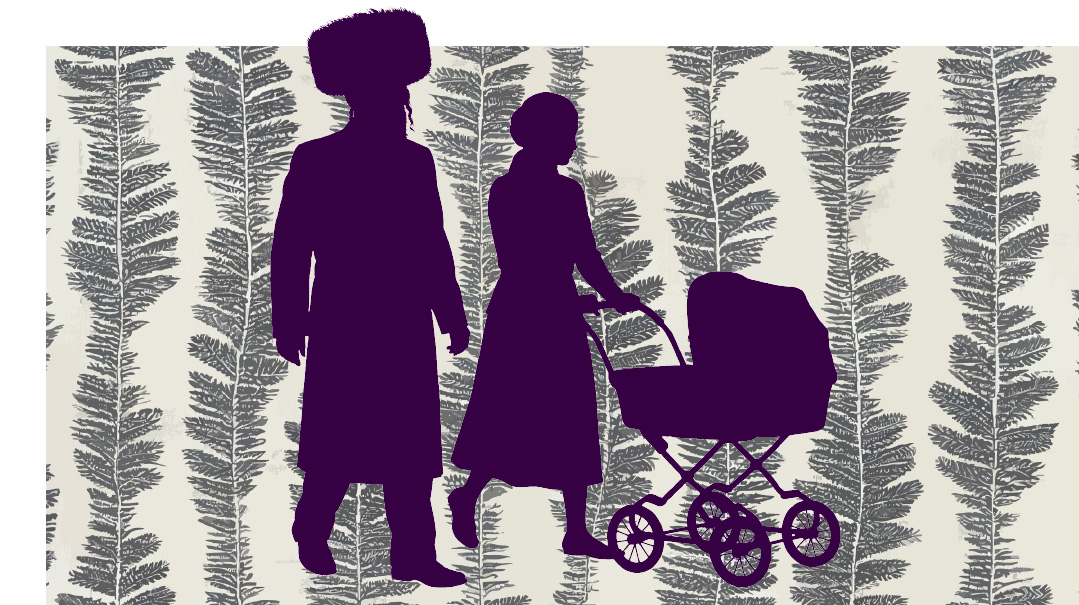Know This: Twins

Don’t call them “the twins.” Use their real names

B
efore we get to what I think you should know about twins, here’s what I know you want to know: Do we fight? I know you want to know that because that was the first question we always got growing up.
Sometimes I said no (basically the truth), sometimes I said yes (just to see what would happen), and sometimes I said, “Do you fight with your sisters?” (if I was in a bad mood). My sister never said that, though. She’s the nicer twin.
The second most common question was, “Do you have a secret language?” and that answers the first question about fighting: It’s not so much a secret language as a deep and intuitive understanding of the other person. When you know someone really well for a long time, you can basically predict how she’s going to react to any situation.
There’s something more to it, though — something too great to be labeled just a “language” and more elusive and mysterious than just a “secret.” But I don’t have a better word for it, just a feeling. (See above re deep and intuitive understanding.)
In fact, when we were newborns, our parents didn’t put us in separate cribs. They’d put us each down at opposite ends of a regular size crib, but when they returned, we were always grouped side by side in the middle. Newborns. Who can’t crawl or see or think. So there is something extraordinary about twins.
We’re not identical twins, but we’re both girls. That’s the best kind of twins. I feel qualified to make that statement because I actually know a lot of twins pretty intimately. I have sibling twins, and I grew up down the block from a pair of identical twin girls. One was in my class and my best friend, and one was in my sister’s class and her best friend. Between all that, we cover all three kinds of twins: my sister and I are both girls, fraternal; our friends are both girls, identical; and our siblings are boy and girl. (Don’t ask me if they’re identical or fraternal. That’s even worse than asking if we fight.)
When I was a kid, I read an article about a woman who was expecting twins and she was terrified. I went to my mother and said, “Is that how you felt?” (Loaded question there.)
And she said, “Not the first time... but when I was pregnant with my second set of twins, I knew what I was in for.” So, message to everyone out there: mothers of twins need a lot of help and support. Like, actual, physical, come-hold-the-baby help and support.
Here’s what you should know about twins: They are two separate people. I know that should be obvious, but it isn’t always. Twins can be very close and have secret languages and all that storybook stuff — but only if they’re allowed to be two separate people.
I called my twin to see what she thought this article should include. First she said, “I have no idea, I’m not a writer, you are.” See, individuals. Then she said, “People should know that the twin bond exists independent of any influence. Encouraging twins to be individuals in no way diminishes that bond.” (I always knew she was the smarter one.)
I was at the dentist about a year or two ago and a woman and her daughter asked me for a ride. It turned out that the daughter, about 12, was a twin. Twins don’t ask twins if they fight (they know the answer). This mother and daughter wanted to know about shidduchim.
Number One Rule for Twins in Shidduchim and My Pet Peeve about Misunderstood Twinship in General: There is no reason to make the “younger” twin wait until the “older” one is engaged in order to start dating. There is just no reason for it.
If you think your older twin can’t handle it, she’s not ready to get married. If you think the twins are so interchangeable that the only way to pick which boy should date which girl is based on the six-minute age difference, neither of them are ready to get married.
My sister (12 minutes younger) dated two boys before I dated any, and we all survived intact. I got married first, by the way.
(Horror story: I’m four inches shorter than my twin, who’s tall enough that people said about her, “She needs a tall boy.” My husband is over six feet and at my vort, people wanted to know, “If he’s so tall, why didn’t he didn’t take the taller sister?” I was like, mazel tov, thank you so much for coming.)
I always shared a room with my twin. I was the messy one. Sometimes being a twin is like going away to camp or seminary — it’s a constant, all-encompassing closeness that forces you to learn to put up with other people.
It’s great preparation for marriage.
How do I feel about possibly having twins of my own? It’s definitely my first question to the sonographer every time I confirm a pregnancy. So far, only one each time. Well, one at a time is also a brachah. I can’t imagine coping with two newborns while also recovering from a twin pregnancy and a twin delivery. I think my mother is a hero.
Still, there’s something I share with my twin sister that my kids don’t have with their siblings. All my life I had a partner, someone on my side, always present. It lent a certain security to the powerlessness of childhood.
Even now, when we’re both married, it’s an irreplaceable, unique relationship. I’m close with all my sisters. But there’s something special between me and my twin.
Don’t Ask Me
- Do you like being a twin? (Do you like not being a twin?)
- Do you fight? (Why do you need to know?)
- Are you identical? (You tell me.)
- Can you read each other’s minds? (Yes, she’s thinking how dumb you sound)
My twin sister, Miriam, says:
I have a postscript to the vort story. My parents named Shaina after our mother’s grandmother — that makes sense. It would have been natural for them to name me Yocheved, after our father’s grandmother, but they named me Miriam, after our father’s great-aunt.
That never made sense to me. Shouldn’t they give a grandmother’s name before a great-aunt? Whenever I asked our parents, they never really had an answer.
But when Shaina got engaged, I understood. Because her husband is very tall. And typically, when we were in shidduchim, all the tall boys were suggested for me, since I’m much taller than Shaina. The only reason Shaina’s husband wasn’t suggested for me was because his mother’s name is... Miriam. Same as mine.
I hope that comforts all the mothers of twin girls out there. Don’t worry too much about shidduchim. Hashem has it all figured out.
TWIN = TWo INdividuals
- Don’t dress them alike. Just don’t. At least not past the age of three. Yes, it’s cute and convenient, but kids are always cute, and not usually convenient, and also, think of the poor sister next in line who’s going to have to wear their double clothes for the rest of her life.
- Same with interests and friends — they should each develop their own. Don’t assume they have the same strengths and interests — given the opportunity to explore, they won’t. And don’t encourage them to be similar. Would you like to be forced to be like someone else?
- Don’t call them “the twins.” Use their real names.
- Don’t place them in the same class in school. Less comparison, less competition, and it allows them to create their own friendships and relationships with their teachers. It was a real perk to have a twin sister when I went away to camp and seminary (we applied to different seminaries but ended up in the same one) but being in separate classes/bunks/dorm rooms gave us the benefits without the drawbacks.
(Originally featured in Family First, Issue 644)
Oops! We could not locate your form.












